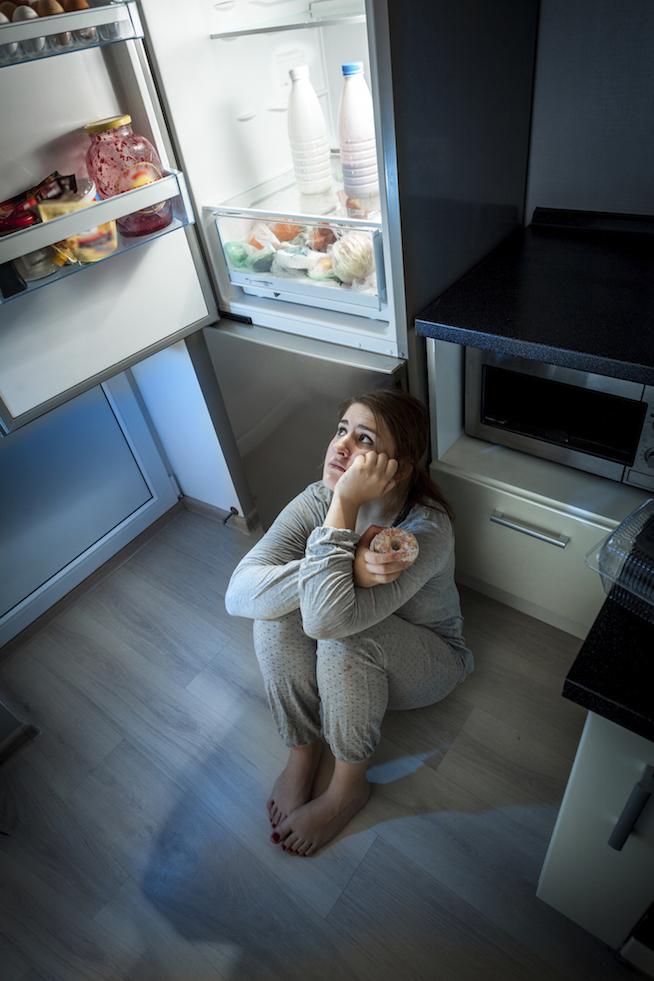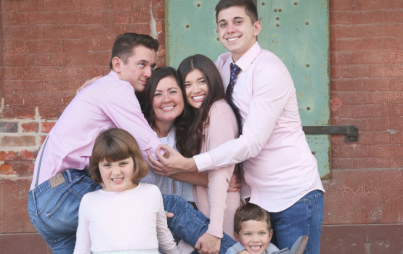
We are not robots. We are creatures who need both fuel AND comfort.
It's the guilt that turns emotional eating into bingeing.
These are two concepts that I think we are all a little confused about.
Even writing on this topic for four years, it’s taken me time to master my explanation of the difference between emotional eating and bingeing. We often use those two terms as if they’re interchangeable.
But they’re absolutely not the same thing! Bingeing is the rabid, frantic, and manic way our body and mind respond to restriction. When you are bingeing, you are restricting — either physically (actually eating less) or mentally (feeling guilty about eating).
The only way to stop bingeing is to stop restricting and to stop feeling guilt over the way you are eating.
Binges are often referred to as “Last Suppers.” They start as a response to restriction; then, once we feel like we’ve “blown it” and guilt sets in, we decide to continue eating everything in sight as a Last Supper before tomorrow’s impending repentance.
Emotional eating is not the same thing. Emotional eating is when we eat to comfort ourselves. And the truth of the matter is that eating to comfort ourselves is not inherently bad or wrong.
Food is comfort. As much as your Beach Body Coach might tell you that humans are only supposed to eat for fuel, that’s not true: We are not robots. We are creatures who need both fuel and comfort.
Food is one of those comforts. The expectation that we should never eat for any reason but hunger ignores how we are actually wired. We are community-based, emotional, ritualistic, and comfort-driven. To deny us emotional eating is to deny us the right to eat birthday cake in celebration. Or to split a dessert on your anniversary despite already being full from dinner.
And when we are sad or stressed, food is allowed to be a part of the way we comfort ourselves.
Emotional eating is not inherently bad. What is unhelpful is having no other coping mechanisms or comfort mechanisms other than eating. The other thing that won’t suit you is using food (or anything else) to numb all of your emotions.
When we are not in a habit of feeling our feelings, food can be an easy way to at least dull them.
Just as alcohol is not inherently a problem until you use it to numb your life, the same thing goes for emotional eating. The answer here is upping your tolerance for actually experiencing your emotions, old and new.
The answer is never restriction or guilt over your eating, and here's why:
Emotional eating and bingeing get tangled up because of guilt. If you’re eating emotionally and you start feeling guilty about your eating, that “mental restriction” will often trigger a full-fledged, rabid, frantic, manic binge, where you try to get it all in before your impending diet.
That’s why we often think that emotional eating and bingeing are one in the same when they’re not — it’s the guilt that turns emotional eating into bingeing. Accepting your eating with compassion and understanding will help you listen better to yourself, eat what you want, and feel the feelings that you might otherwise want to numb.
Basically, just replace your guilt with compassion, and you’ll be golden.
And please, please, please, NO RESTRICTION!







